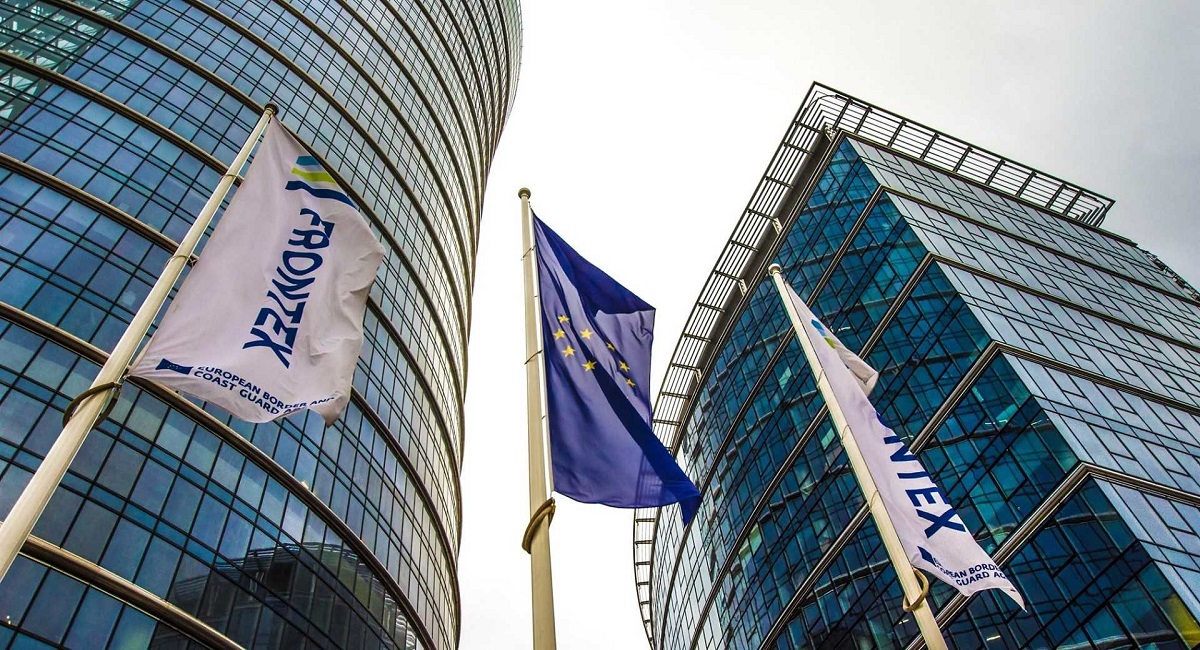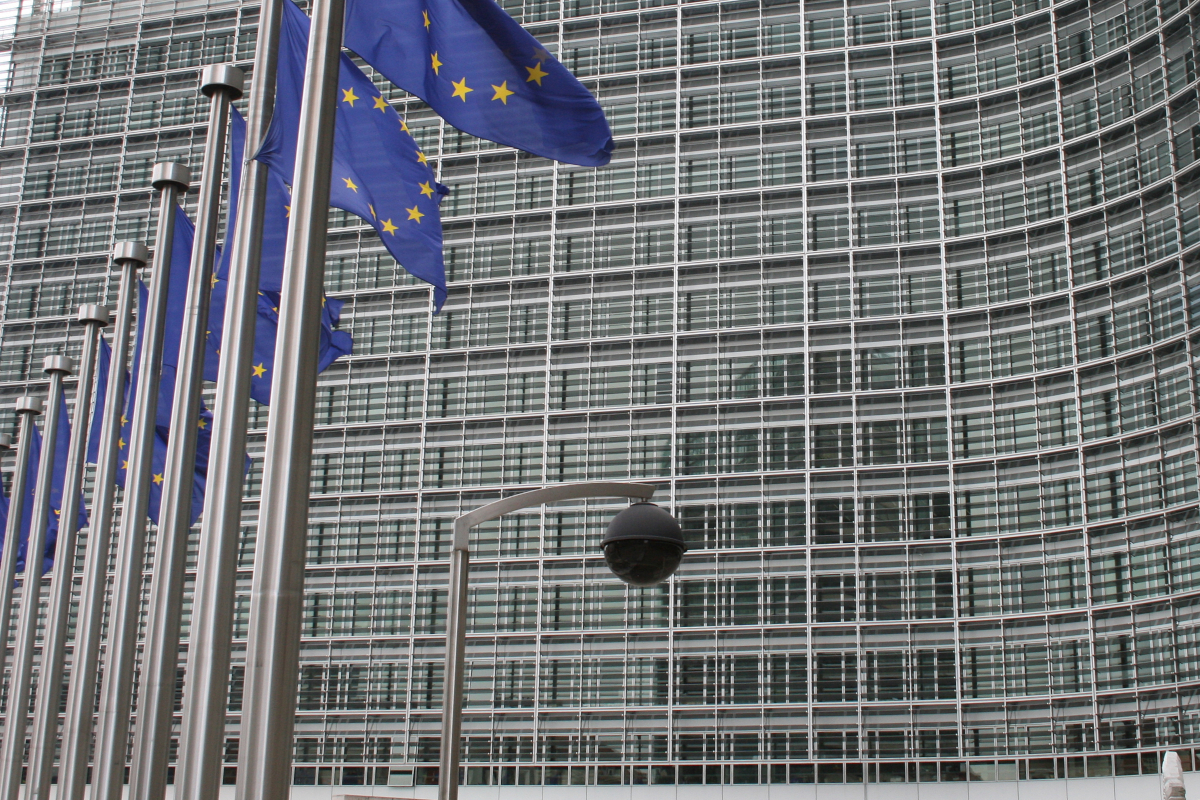News
Launched in 1999 and updated regularly, Statewatch News includes our own reporting and writing as well as articles, announcements, documents and analyses from elsewhere on civil liberties, EU policies and state practices. You can receive updates in your inbox by signing up to our mailing list, or use our RSS feed to get instant alerts.

Europol: small steps on transparency, but many documents still under lock and key
Last year, Europol committed to a number of transparency measures in response to an Ombudsman decision in a case filed by Statewatch. In March this year, MEP Patrick Breyer followed up with questions on the agency’s fulfilment of these commitments. We publish Europol’s answers here.

Frontex: Exchange of views leaves key questions hanging
The LIBE Committee Frontex Scrutiny Working Group (FSWG) held an exchange of views on Frontex’s activities in non-EU countries today, though certain questions by members were left conspicuously unanswered.

Frontex not subject to human rights clause in mapping contract with Italian university
Last year protests broke out at Turin Polytechnic University when a professor denounced a contract between EU border agency Frontex and a consortium that included one of the university's departments. In response, a human rights clause was belatedly introduced into the two-year, four million euro contract - although Frontex denies having seen any such clause or other documents produced by the consortium.

EU: Tracking the Pact: Externalisation instead of relocation as part of "voluntary solidarity mechanism"
The EU's Justice and Home Affairs Council, which is meeting today and tomorrow, looks set to adopt a "voluntary, simple and predictable solidarity mechanism" designed to reduce the "pressure" on southern EU states experiencing the arrival of substantial numbers of refugees. Relocation to other member states is described as "the preferred method of solidarity", but financial support for externalised migration control, border surveillance and other repressive measures would also be a possibility.

European Commission must withdraw new law to uphold online privacy, security and free expression
Statewatch has joined 72 other civil society organisations and professional bodies to demand in an open letter that the European Commission withdraw the proposed Child Sexual Abuse (CSA) Regulation, and replace it with an approach that upholds fundamental rights. The proposal would fundamentally undermine how the internet works, making it less safe for everyone.

Frontex: big spending on aerial surveillance
UK, Austrian and Dutch aviation firms share in multimillion contract for maritime surveillance operations, including surveillance of the Channel.

Frontex: "exchange of views" unlikely to give air time to fundamental rights
The 'Schengen Council', a discussion between home affairs ministers, will hold its first political exchange of views on Frontex on Friday 10 June. A preparatory document circulated by the Council Presidency emphasises Frontex's "indispensability", the importance of status agreements with non-EU countries, and asserts that Frontex will need to support member states to maintain public order in the face of "violent" attempts to cross borders.

EU: International personal data transfers: Presidency seeks "a coherent and ambitious European policy"
At the Justice and Home Affairs Council meeting on 9 and 10 June ministers will be invited to discuss the need for "a coherent and ambitious European policy" on international transfers of personal data, which are described in a Presidency discussion paper - published here - as "a major strategic challenge in several important areas of public policy". We are also publishing a report by the French Presidency of the Council on "international personal data flows and trade agreements."

EU: Inquiry must examine use of spyware against human rights activists worldwide, MEPs told
Over 20 human rights organisations, including Statewatch, have urged a European Parliament committee of inquiry into the use of Pegasus and other forms of surveillance spyware to invite testimony from targeted activists from across the globe, rather than just within in the EU. Read the open letter to the committee here.

EU: Policing: Council close to approving position on extended biometric data-sharing network
The Council of the EU is close to reaching an agreement on its negotiating position on the 'Prüm II' Regulation, which would extend an existing police biometric data-sharing network to include facial images and offer the possibility for national authorities to open up their databases of "police records" for searches by other member states.

EU: Attempts to increase "convergence of asylum practices" and information-sharing on "asylum applicants presenting a threat to public order"
In an attempt to give more substantial meaning to the idea of a 'Common European Asylum System', plans are underway to encourage "the convergence of asylum practices". The French Presidency of the Council also hopes to increase information exchange on asylum applicants between national authorities, including "asylum applicants presenting a threat to public order." However, plans for a special information exchange mechanism have received a frosty reception from member states.

European Commission: Update on state of play of external cooperation in the field of migration policy
A recent European Commission document circulated to member state delegations in the Council demonstrates the scale and scope of the EU's "external migration" initiatives, which cover countries ranging from Bangladesh to Bosnia, as well as a number of multilateral initiatives. The document includes an overview of the current level of cooperation between the EU and "partner" countries and fora, as well as lists of recent meetings and events.

EU: Tracking the Pact: Plan for biometric registration of Ukranian refugees "unrealistic"
The French Presidency recently proposed expanding the Eurodac database even further, to include beneficiaries of temporary protection. Currently the only nationality to enjoy the benefits of the EU's Temporary Protection Directive are Ukranians fleeing the Russian invasion. Although some member states are in favour of the plan, Hungary and Poland are strongly opposed.

EU: Agencies propose a "European System for Traveller Screening" that "could include AI technology"
In 2019, Europol and Frontex set up the 'Future Group on Travel Intelligence' with aim of "identifying and elaborating new operational opportunities" by building on the data processing opportunities offered by the EU's 'interoperable' databases. The final report, published here alongside a wealth of preparatory documents, proposes a "European System for Traveller Screening", described as "a decentralised, yet EU-wide, screening function for travellers," which "could include AI technology".

EU: Council to push for “on the spot” biometric ID checks, inserting “all available data” in Schengen Information System
The Council of the EU is set to call for “an ambitious implementation” of new rules on EU policing and immigration databases, including “on the spot” biometric ID checks with mobile fingerprint readers and face scanners; ensuring that “all available data” from national databases is added to the Schengen Information System; and enabling “full use of discreet checks, inquiry checks and specific checks,” which allow the gathering of information about targeted individuals.

EU: Ukraine: New proposal to add temporary protection beneficiaries to Eurodac database
A proposal to expand the Eurodac database of refugees' biometric data has been the subject of negotiations in the Council and Parliament since 2016, but discussions have been stuck for some time. Now the text is back on the agenda in the Council, with a proposal to include another group in the database: beneficiaries of temporary protection, which at the moment consists of Ukranians who have fled the Russian invasion.

EU: Police to be granted cross-border access to driving licence photos
EU police forces will be able to retrieve the photos of holders of driving licences held by other member states, according to the latest amendments to a proposal known as 'Prüm II', which will massively expand cross-border police access to biometric and other data. There is also the possibility for the UK to join the upgraded system.

EU: Disappearing documents: Frontex's transparency efforts fall short of requirements
Earlier this year, EU border agency Frontex created a public register of documents, as the law requires, in response to a complaint filed by Statewatch. However, the register does not include everything it should - and some documents that were previously made public appear to have been removed from the agency's website.

EU has spent over €340 million on border AI technology that new law fails to regulate
The EU has spent €341 million on research into artificial intelligence technologies for asylum, immigration and border control purposes since 2007, yet the proposed AI Act currently being debated in EU institutions fails to provide meaningful safeguards against harmful uses of those technologies, says a report published today by Statewatch.

EU: Reform of the Schengen Borders Code: Presidency compromise text
On 3 May the French Presidency of the Council circulated its most recent proposed amendments to the Schengen Borders Code, which is to be amended in order to introduce new powers to deal with: the so-called "instrumentalisation of migrants" by third states and non-state actors; border closures and controls in the event of threats to public health; the reintroduction of internal borders within the Schengen area; and identity checks and surveillance at the external and internal borders. We are also publishing previous compromise texts.
Spotted an error? If you've spotted a problem with this page, just click once to let us know.